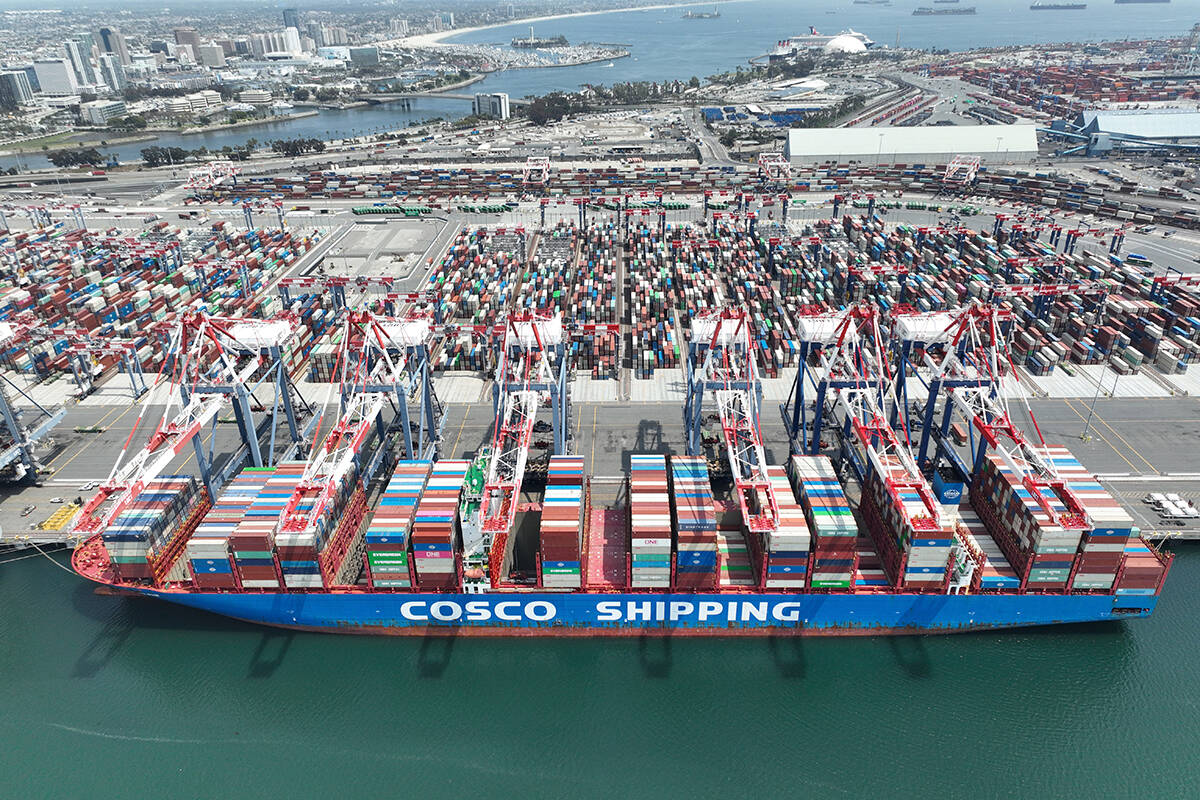Beef is at record-high prices in the United States Ð thanks to Canada’s lone case of bovine spongiform encephalopathy.
It’s making American cattle producers happy.
“So far this is good news on our side of the border,” said University of Missouri meat market analyst Ron Plain.
“It’s a sad thing to benefit from your neighbour’s problems, but so far, so good.”
Both Plain and Kansas State University analyst James Mintert credit the closed border for the sudden leap in American beef prices.
Read Also

U.S. softens fees on Chinese shipping
The U.S. starts charging new fees on Chinese ships on Oct. 14. What are the ramifications for their ag exports?
About eight percent of beef eaten in the U.S. comes from animals born in Canada and the sudden shut-off of that source has jolted markets.
Neither expected the BSE case to cause prices to jump, because they thought the drop in supply would be met by a slide in demand.
But there is no sign that American consumers are eating fewer steaks or hamburgers.
“Consumers seem to be taking this in stride,” said Mintert. “I expected more reaction than this.”
After an initial flurry of headlines in American papers, the story of Canada’s BSE case is fading.
“BSE is having an awful hard time keeping in the news,” said Plain.
“Consumers aren’t being reminded about it. It may be pretty well forgotten by the time the border opens.”
Mintert said if no other cases are found in Canada, beef demand should be unaffected.
But more cases could cause demand to slump, he and Plain said.
“That’s the other shoe falling,” said Mintert.
“If they find more cases, it’s going to be all over the news again, and enough of that and people will probably get scared.”
When the border reopens, Canadian farmers won’t be able to take advantage of the present record prices. They will be the cause of U.S. prices falling.
“I look for a real drop-off in U.S. cattle and beef prices when that occurs,” said Plain.”The supply’s going to be a lot larger.”
Right now Canadian beef is sitting in export warehouses waiting for world markets to reopen. And feeder cattle are getting bigger and meatier each day they sit in the feedlots.
The Canadian beef ban is not the only reason U.S, prices have risen.
Canadian beef sales to Japan, Korea, Hong Kong, China and Mexico have been halted, and that has boosted international demand for American beef.
Cam Daniels of the Canada Beef Export Federation said Australian beef is also meeting demand normally filled by Canadian beef.
“They’re really taking advantage of the situation,” said Daniels.

















